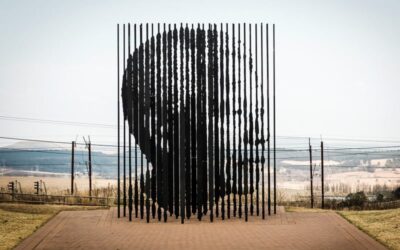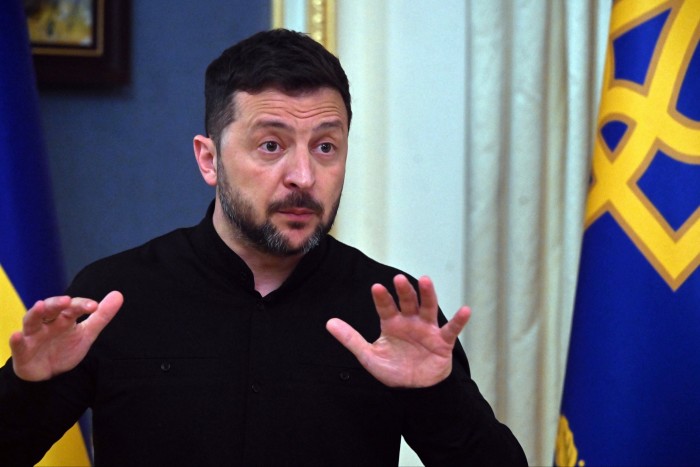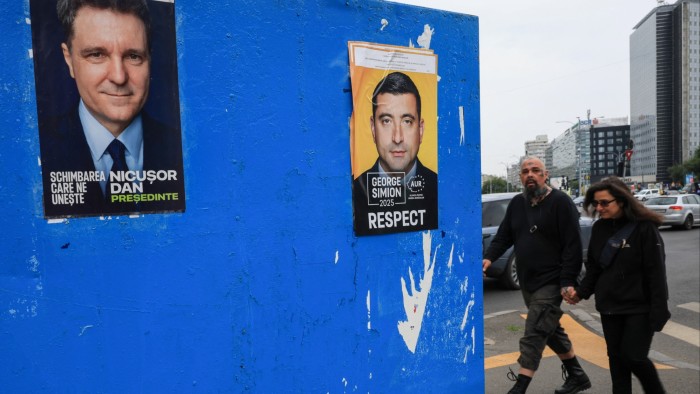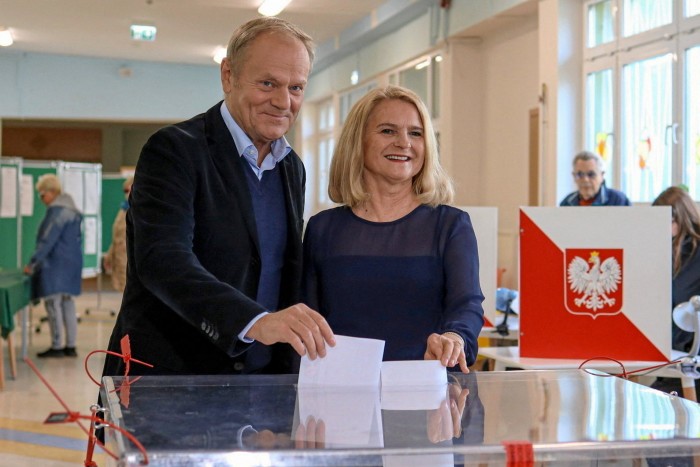The fellowship: how Trump loyalists are taking over the US state department
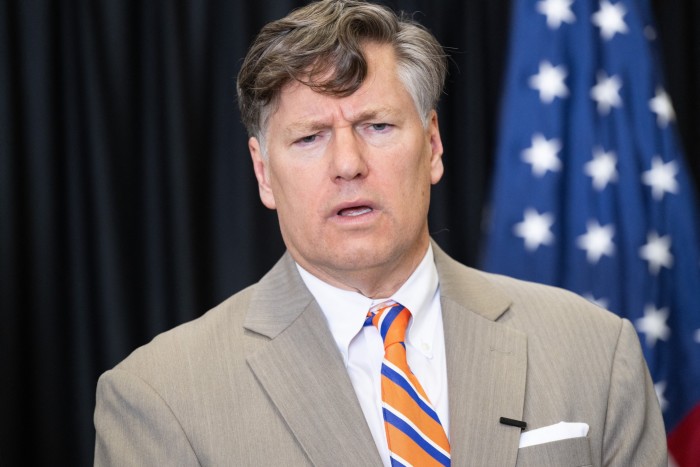
There was widespread shock in Washington last month when Lew Olowski, a lowly and little-known official, was appointed acting director-general of the US foreign service — one of the state department’s most senior leadership posts.
A former national security lawyer, Olowski entered the foreign service just four years ago. In his new job, which usually goes to a veteran diplomat, he is, in effect, head of human resources at one of the biggest US government agencies
It was like “placing a junior military officer . . . in charge of the Pentagon’s personnel system”, said AFSA, the foreign service’s labour union.
But Olowski had one thing going for him: his membership of the Ben Franklin Fellowship (BFF), a conservative-leaning network of retired and serving diplomats that has made big inroads into the state department since President Donald Trump re-entered the White House.
The BFF insists it is non-partisan but makes no bones about its support for Trump’s America First agenda. In a blog post late last year, Phil Linderman, its chair, said the organisation’s role was to steer careerists at the state department “towards diplomacy that promotes American sovereignty, strong national borders, fair trade practices, and scepticism about multilateralism”.
Linderman said that “Trump-aligned and conservative FSOs [foreign service officers] and civil service staff are a distinct minority in state, but they are there”. Such officials are now being promoted to top posts across the department.
The FT has identified 11 BFF fellows who have assumed senior roles at the state department since Trump’s inauguration. One of them is Christopher Landau, US ambassador to Mexico during Trump’s first term, who was appointed deputy secretary of state in March.
But fellows have also been tapped for roles ranging from acting under-secretaries to deputy assistant secretaries and senior bureau officials — a remarkable success rate for an organisation that was only created last year.
One official said that for many of the BFF fellows now being promoted, “their main — and primary — qualification is that they agree with Trump’s agenda”.
“State is eroding itself from the inside out,” the person said.
Some have even described the BFF as the “Maga deep state” — a designation Simon Hankinson, one of the fellowship’s founders, rejects.
“For us the absolute last thing we’d ever want to do would be to re-establish a deep state — that’s exactly what we’re against,” Hankinson, a former state department official who is now a senior research fellow in the border security and immigration centre at the Heritage Foundation, told the Financial Times.
“And the expression Maga carries such baggage.”
He also dismissed suggestions from critics of the BFF that it was made up of disgruntled white foreign service officers who felt victimised by the state department’s diversity, equality, inclusion and accessibility policies. One official called it “the revenge of the underperforming white male”.
Hankinson said it was clear that “women have been promoted at a higher rate than men for the last 20 years” at the state department, but he insisted he did not want to simply replace one form of discrimination with another.
“What we would really like to see is a return to meritocracy and equality of opportunity, as opposed to equality of outcomes,” he said.
But the fellowship’s founders are proud of its growing influence, saying they want to emulate the success of the Federalist Society, the conservative network which supplied many of Trump’s judicial nominees during his first term.
In his blog post Linderman said the BFF’s organisers were “following the playbook” of the Federalist Society.
“It’s definitely a model we’re bearing in mind,” said Hankinson.
The personnel changes at Foggy Bottom, the Washington neighbourhood where the state department is headquartered, have passed largely unnoticed by the wider public, with other developments at the agency garnering much greater attention.

These include the shuttering of the US Agency for International Development, the 10,000-strong agency with a $44bn budget that had become a symbol of American soft power.
There has also been widespread dismay in the US foreign policy establishment at the state department’s collusion in Trump’s deportation programmes and the arrest of students accused of involvement in campus protests. Marco Rubio, secretary of state, has boasted of revoking thousands of student visas since the change in government.
But the personnel changes have also raised concerns. Gregory Meeks, the ranking Democrat on the House foreign affairs committee, has accused Rubio of “replacing seasoned professionals with political loyalists, undermining one of the core principles of the Foreign Service”.
One of the most glaring examples, he said, was the appointment of Olowski, who once worked as general counsel for Tucker Carlson’s The Daily Caller News Foundation, as senior bureau official of the Bureau of Global Talent Management. He replaced Marcia Bernicat, a seasoned diplomat who is Black.
Rubio “appointed an entry-level officer with one overseas tour to lead Global Talent Management, replacing a two-time ambassador with decades of service, who happened to be an African American woman,” Meeks said. “This isn’t about race — it’s about experience, integrity, and basic qualifications.”
The state department did not respond to requests for comment.
Trump has never concealed his contempt for a “deep state” he claimed blocked him during his first term in office, and has made clear his desire to align the state department more closely with his Maga goals, including by firing senior bureaucrats he deems disloyal.
In a statement after his inauguration, the White House ordered the state department’s “policies, programmes, personnel and operations” to be brought in line with an “American First foreign policy, which puts America and its interests first”.
That process began even before Trump began his second term, with his transition teams asking large numbers of senior career diplomats to step down from their roles.
The purge was considered unusual: most political appointees resign when a new president takes office, but career FSOs tend to stay in post from one administration to the next.
Those being shoved aside were “non-partisan public servants” with “decades of experience serving Republicans and Democrats and are key to US national security”, said Jeanne Shaheen, a Democratic senator.
Some of the political appointments have also raised eyebrows, even among Republicans. Darren Beattie, who was tapped as acting under-secretary for public diplomacy and public affairs in February, worked as a speechwriter for Trump during his first term, but left his post in 2018 after it was reported that he had spoken at a conference attended by white nationalists. Last year he declared on X that “competent white men must be in charge if you want things to work”.
Rubio defended Beattie’s appointment, saying he had been brought on board “because he’s strongly committed to ending the censorship programs that were being operated out of the state department”.
US diplomats say privately that experienced career FSOs are now retiring or resigning in large numbers, in part over concerns at political developments at the agency.
“They’re haemorrhaging experts at a rate that’s just unprecedented,” said one.
“State is being taken over by dangerous radicals.”

